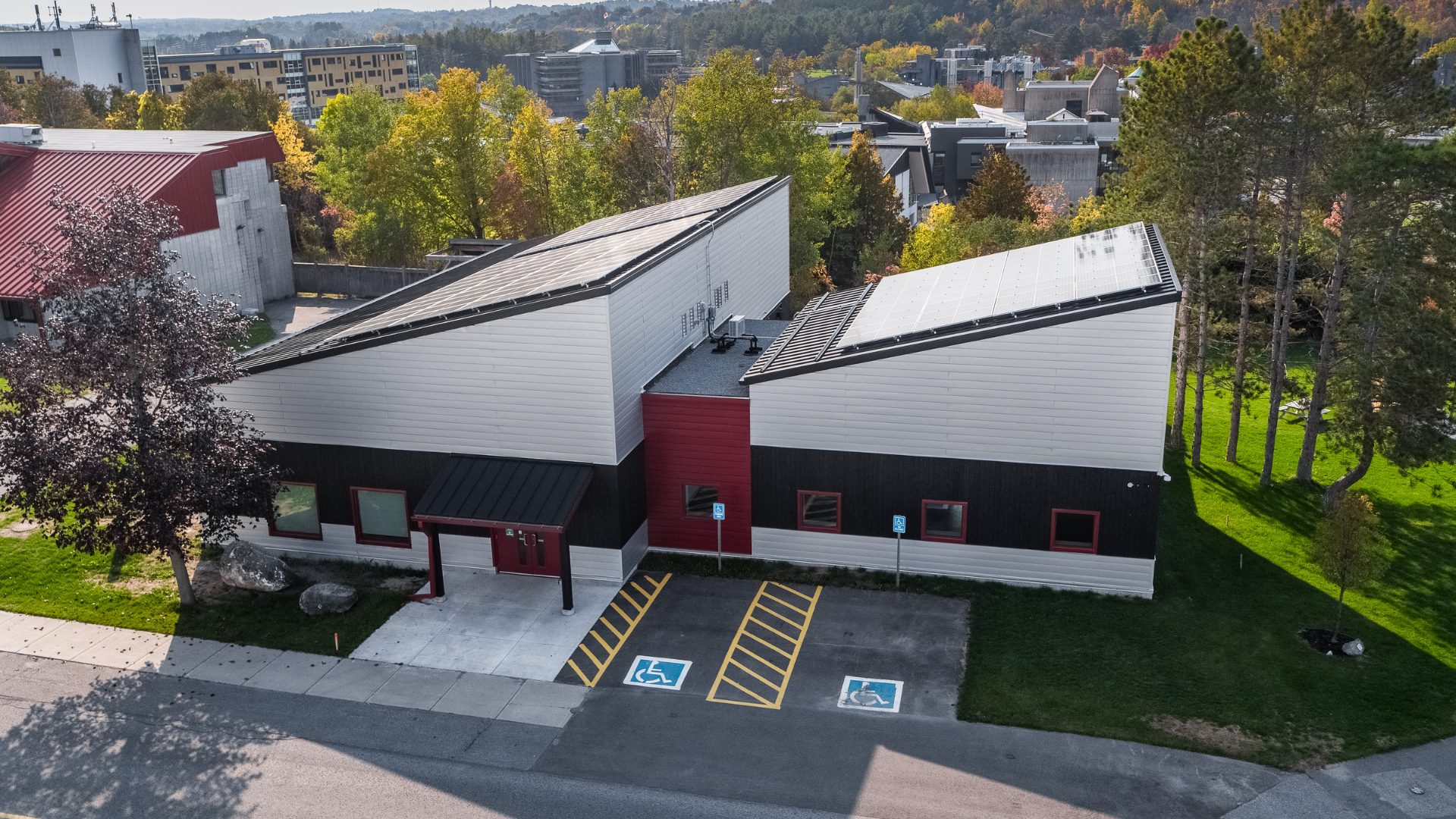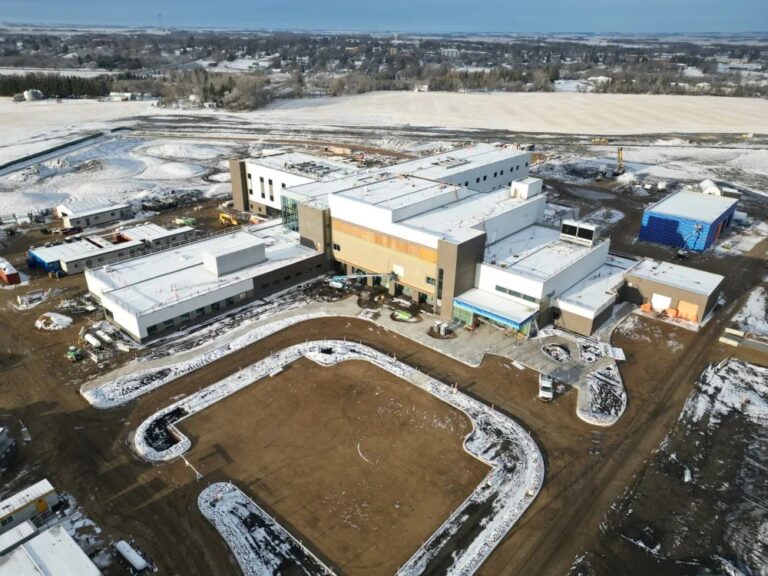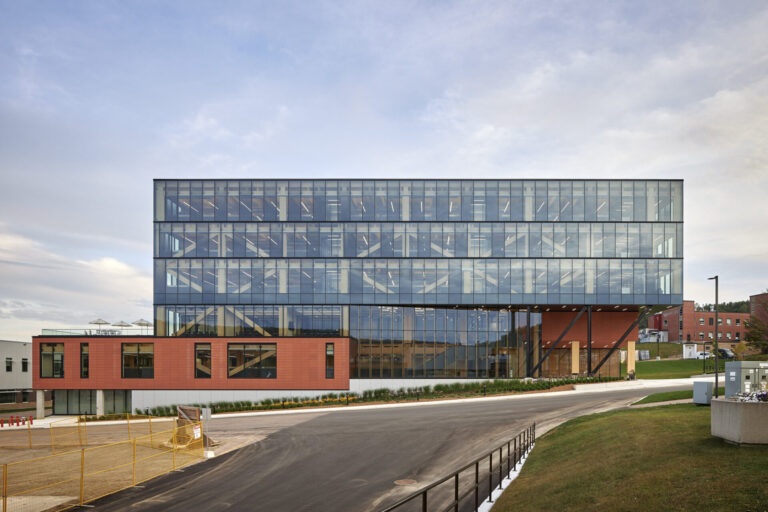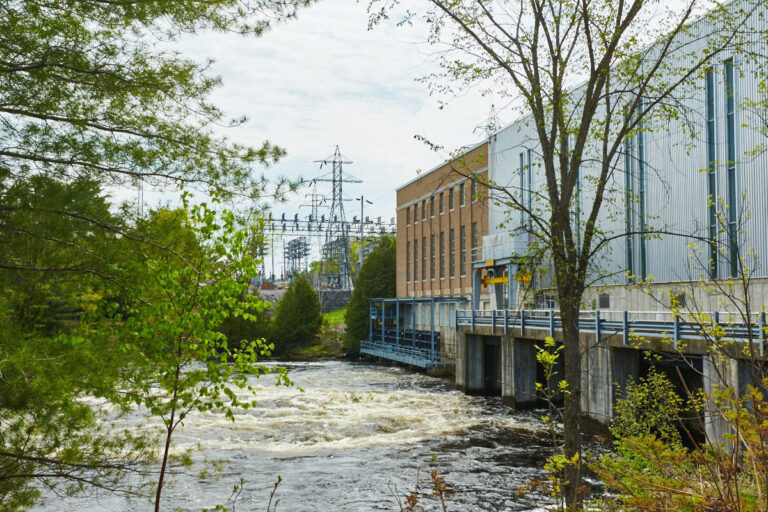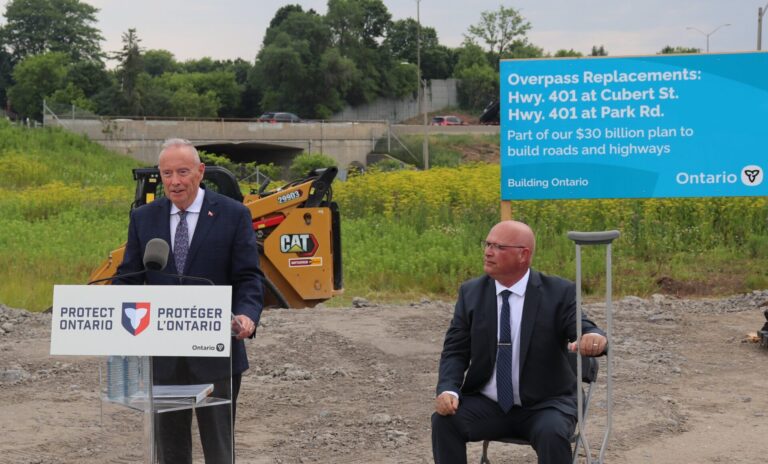Trent University’s Forensics Crime Scene Facility has become the first Canadian building – and the 11th worldwide – to receive the prestigious Zero Carbon Certification from the International Living Future Institute (ILFI).
The construction of the Forensics Crime Scene Facility at Trent University is the product of careful long-term planning involving a Trent alum whose expertise helped to meet the rigorous standards of this certification, considering both the building’s construction and its ongoing operation. To this end, the University prioritized reducing embodied carbon—released during the extraction, manufacturing, and transportation of building materials—and minimizing operational carbon output, including electricity and natural gas usage.
“Achieving ILFI’s Zero Carbon Certification for our renowned Forensics Crime Scene Facility is a testament to Trent’s ongoing dedication to sustainable growth and climate leadership on our campuses,” said Dr. Cathy Bruce, president and vice-chancellor of Trent. “This certification serves as a gold standard in green construction, requiring 12 months of data to demonstrate that the building meets the carbon targets. We are proud and pleased to be among the small cohort of global leaders – and the first in all of Canada – to have received this certification.”
The facility contains climate friendly materials such as cellulose insulation (a plant-based insulation alternative) and wood, to store carbon within the building structure; and it is equipped with a 33-kilowatt solar panel that generates 30 per cent more electricity than the building requires. The building’s surplus of energy is shared with Otonabee College, further enhancing the sustainability of the campus.
“Trent University’s Forensics Crime Scene Facility sets a new standard for sustainability in Canada as the first building to achieve the Zero Carbon Certification in the country,” said Liya Temin, senior manager of Certification at ILFI. “By addressing both operational and embodied carbon emissions, their achievement demonstrates a holistic approach to carbon reductions in the built environment.”
The Zero Carbon Certification was developed by ILFI to address the building sector’s significant role in global greenhouse gas emissions, and is held by just 11 buildings worldwide. By requiring that entrants reduce both the embodied carbon released during the construction process and the operational carbon output of the building, and needing 12 months of data required as proof, this certification stands out for its high standards.
Playing a key role in the success of this project was Chris Magwood (‘85), manager of Carbon Free Buildings at the Rocky Mountain Institute, a global leader in green construction. As an expert in sustainable building practices, Magwood provided critical advice on the planning of various carbon reduction strategies and the implementation of renewable materials used to reduce the building’s overall carbon output.
“The Trent Forensics Building has the lowest embodied carbon of any commercial or institutional project I’ve ever seen, making it a global leader in both carbon reductions and carbon storage,” said Magwood. “Even without accounting for any carbon storage, it has half the embodied carbon footprint allowed by ILFI’s Zero Carbon Certification.”
He added: “Achieving zero carbon results like this only happens with committed teamwork. As an added bonus, the building is also a beautiful and durable learning hub that will serve its occupants for decades to come.”
Featured image: (Trent University)

